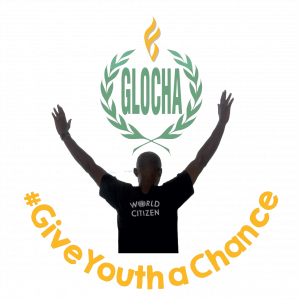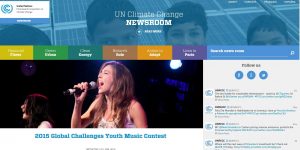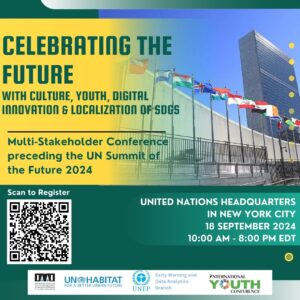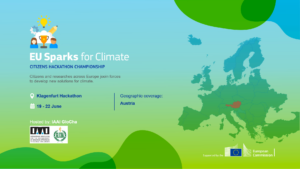International Conference: Knowledge, Youth and Global Commons, 15. & 16. September 2011,Klagenfurt am Wörthersee, Austria


International Conference:
Knowledge, Youth and Global Commons
Orienting Knowledge Systems and Inter-Generational Relations towards Sustainable Development and Rio+20
Date: 15. & 16. September 2011
Venue: Maria Loretto Palace, Klagenfurt am Wörthersee (Austria)
Organizers:
· Austrian Science and Research Liaison Office Ljubljana www.aso.zsi.at
· International Association for the Advancement of Innovative Approaches to Global Challenges www.glocha.info
· Academic Council on the United Nations System – Vienna Liaison office www.acuns.org
General Information:
“Sustainable development is development that meets the needs of the present without compromising the ability of future generations to meet their own needs.”
(source: World Commission on Environment and Development (WCED). Brundtland Report: Our common future. 1987)
Aiming for ‘sustainable development’ which would meet the needs of present generations without compromising the needs of future generations – this has been the promise of the heads of states and other global political leaders who gathered at Rio Earth summit in 1992.
Where do we stand 20 years later?
Progressing climate change and dead-locked post-Kyoto negotiations, biodiversity loss, ongoing extreme poverty in many places of the world, escalating sovereign debt crisis and resulting cuts in public investment in education, social welfare .. in times where the number of billionaires according to Forbes grew 20 % in one year alone etc. are indicators that humanity is far away from fulfilling the Rio 1992 summit promise and that something is systemically/radically wrong in the way we manage global wealth.
The population group most exposed to the non-delivery of global sustainable development governance are global youth and future generations in general. For sustainable development concept to function, it is crucial that global resources management decisively maps and safeguards crucial sustainable development resources, tame market economy forces and correct market failures where they lead to destruction/overconsumption of natural resources and mobilize innovative multi-stakeholder partnerships for global public goods/global commons like provision of sustainable development related knowledge and human capacity worldwide.
United Nations Conference on Sustainable Development (UNCSD) in Rio de Janeiro in June 2012 seems to be the one big window of opportunity for global community to take stock of the “State of the future”, its many challenges and systemic risks for ecosystems degradation and governance failure and to forge – with substantial global governance innovations – a strong global problem solving alliance which provides a multilevel and multiactor governance framework for coherent collaborative action which would involve every global citizen.
At the ‘Knowledge, Youth and Global Commons’ conference youth from around the world will have a voice to contribute to the process of UNCSD preparation.
A special focus of the conference will be on ‘knowledge’ as the key global sustainable development governance coordination element.
Another specific focus of the conference will be the IAAI proposal to frame all those resources that are needed by present and future generations for sustainable development as ‘global commons’ and to launch in the context of Rio 2012 a multi-stakeholder partnership (and a related documentation and assessment system) for global commons growth based on a shared social responsibility for such global commons. This would provide a new institutional framework for civic engagement and multilevel governance and help strengthen the knowledge base for global governance.
Conference Documentation
 Presentations (pdf):
Presentations (pdf):
- Peter Volasko: Europan Research Area „Ljubljana Process“Governance
- Mirolav Polzer: Global Commons Innovations for Sustainable Development
- Davor Šoštarič: COBISS.Net – Support to knowledge, intercultural dialogue and development of the region
- Zoran Aralica: Knowledge and Sustainable Development metrics in the context of WBC regional STI strategy development process
- Sara Farley: Measuring Science, Technology and Innovation Capacity To Tackle Development Challenges and Build the Global Knowledge Commons
- Sebastiao Mendonça Ferreira: Global Perspectives on the ‘Knowledge Commons’ Concept – Can Sustainable Development related Knowledge be Framed as Global Commons?
 Videos:
Videos:
Session 1: Market Failures, Governance Failures, Intergenerational Relations and the Rio +20 Window of Opportunity
(Chair: Francesca Giannotti)
- Boris Pleskovič (former vice chair of the World Bank Research Committee) :Knowledge – the Key Resource for Sustainable Development
- Beppe Lovoi, UNCSD secretariat: United Nations Conference on Sustainable Development Rio 2012 – A Window of Opportunity for the World and SEE
- Ivana Savić, Major groups “Children and Youth” UN Conference on Sustainable Development:Sustainable development, Trans-Generational Justice and the Role of the UN System
- Jean Paul Brice Affana (African Youth Initiative on Climate Change, UNFCCC Youth Focal point & Rio+20 GYMC coordinator) :Global Youth Claiming Sustainable Development Resources – the Rio+20 GYMC
Session 2: Mapping and Mobilizing Knowledge Resources for Sustainable Development
(Chair: Michael Platzer, ACUNS Vienna Liaison Office)
- Sebastiao Mendonça Ferreira (research fellow at the MIT Community Innovators Lab & member of Knowledge Management for Development network KM4Dev): Global Perspectives on the ‘Knowledge Commons’ Concept – Can Sustainable Development related Knowledge be Framed as Global Commons?
- Priti Rajagopalan, Indian Youth Climate Network, National institute of Technology, India :Knowledge for Sustainable Development – Youth Perspectives
- Franz Rauch, (The Institute of Instructional and School Development (IUS) of the Klagenfurt University) : Education for Sustainable Development
- Miroslav Polzer (ASO Ljubljana & IAAI): Global Commons Innovations for Sustainable Development and the planned Global Challenges Center Network in SEE
Session 3: How to measure the contribution of science and education to Sustainable Development & Potentials of the ‘knowledge commons’ concept?
(Chair: Gašper Hrastelj ,Slovenian National Commission for UNESCO)
- Ilan Chabay (chair of the ‘Knowledge, Learning and Societal Change’ project of International Human Dimensions Programme IHDP, Chalmers University of Technology, Gothenburg, Sweden) :Models, Media, and Metrics: improving how we learn for sustainability
- Sara Farley, Global Knowledge Initiative, Washington: Breakthroughs in measuring science, technology and innovation in the context of collaborative knowledge networks
- Zoran Aralica, Institute of Economics, Zagreb: Knowledge and Sustainable Development metrics in the context of WBC regional STI strategy development process
- Davor Šoštaric (Institute of Information Science, Maribor): Integrating SD related STI governance innovations in Southeast Europe into (existing) science information systems
———————————————————————————————
Launch of GloCha Center Klagenfurt-Ljubljana
Speakers:
- Andrea Wulz, City of Klagenfurt
- Anneliese Stoklaska, Ministry of Science and Research, Republic of Austria
- Francesca Giannotti, IAAI
- Michael Platzer, Academic Council on the UN System
- Blaž Golob, Center for eGovernance Development in SEE and Vice president of IAAI
- Miroslav Polzer, IAAI
Youth choir DANICA, St. Primus am Turnersee/Šentprimož







